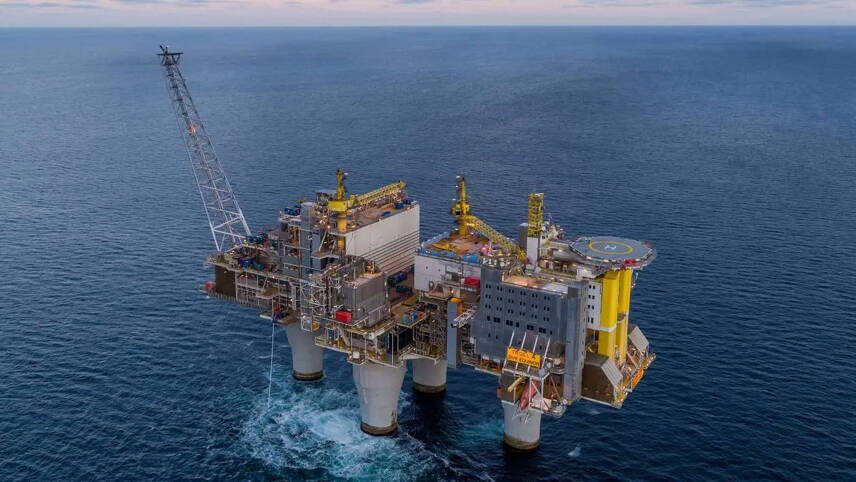Register for free and continue reading
Join our growing army of changemakers and get unlimited access to our premium content

Pictured: A platform at Equinor's Troll A oilfield in the North Sea,. Image: Jan Arne Wold/Elisabeth Sahl - Equinor
Regulator the North Sea Transition Authority (NSTA), legally known as the Oil and Gas Authority, approved the project in September, paving the way for Norwegian energy major Equinor to target first production in the 2026-7 financial year.
The Energy Secretary also had to give approval for the project, which is more than twice the size of the controversial Cambo oil field at around 300 million barrels of oil.
Approval was given on grounds including job creation and energy security – despite the fact that oil and gas are internationally traded commodities, meaning the UK has no right to set aside its own production for itself.
Uplift and Greenpeace UK have today (18 December) mounted separate legal challenges to the approval decision, citing incompatibility with the UK’s legally binding carbon budgets and 2050 net-zero target.
Their argument is that the Government has not properly assessed the emissions likely to be generated from burning oil and gas from the site. For most oil and gas companies, these Scope 3 (indirect) emissions account for more than 90% of their overall greenhouse gas emissions.
Uplift and Greenpeace UK have both applied to the Court of Session in Edinburgh for a judicial review of the decisions made by the NSTA and the Energy Secretary. The court is expected to rule on whether or not to grant permission for a full hearing of the case in early 2024.
The campaign groups want the Government to provide evidence, in court, to prove that Rosebank’s lifecycle emissions would not “blow the UK’s own plans to stay within safe climate limits”.
Greenpeace UK’s co-executive director, Areeba Hamid, said: “Rosebank’s development was approved under the false claim that it is entirely compatible with the UK’s legally binding climate commitments. This is a lie.
“The Government used a rigged climate assessment to approve its development, deliberately ignoring all the emissions that will come from burning the barrels of oil it contains. It’s like building a bomb and claiming it’s completely harmless so long as no one detonates it.”
The UK Government’s own advisors at the Climate Change Committee (CCC) have recommended a “presumption against exploration” for oil and gas expansion and stated that current climate “stress tests” for projects are not robust enough.
Nonetheless, Ministers are pressing ahead with annual oil and gas licencing rounds and a spokesperson said they would “robustly defend” the new legal challenges against Rosebank.


Please login or Register to leave a comment.